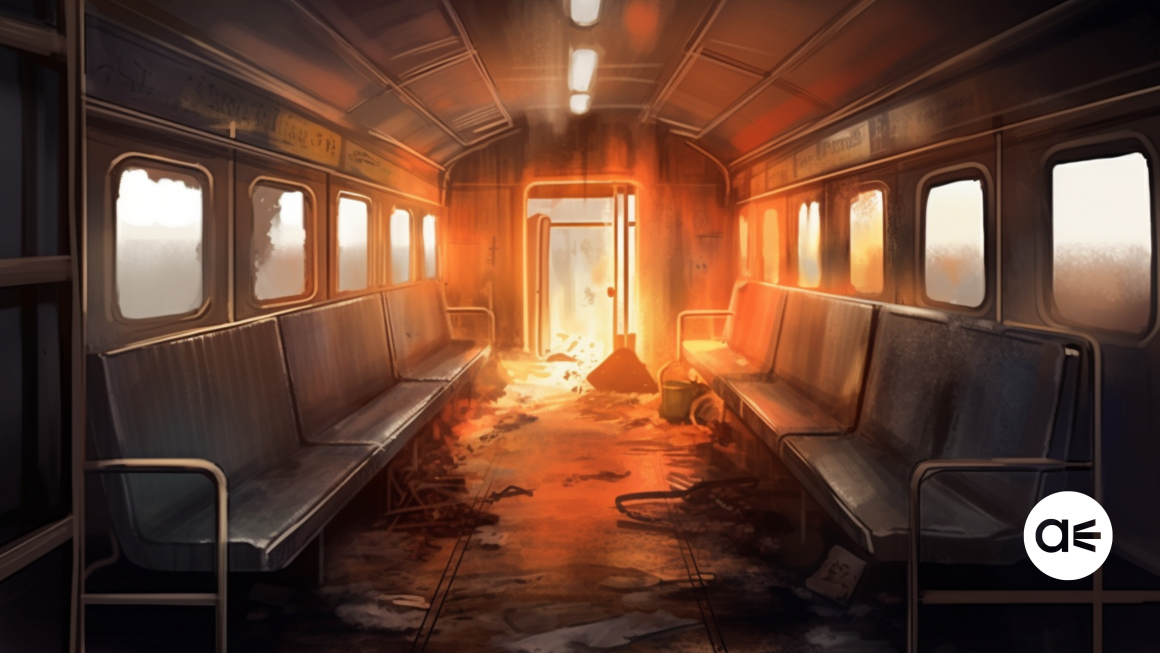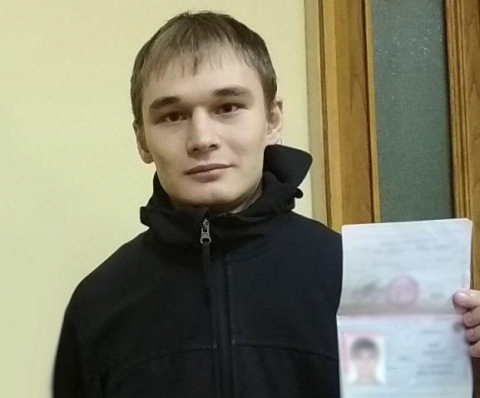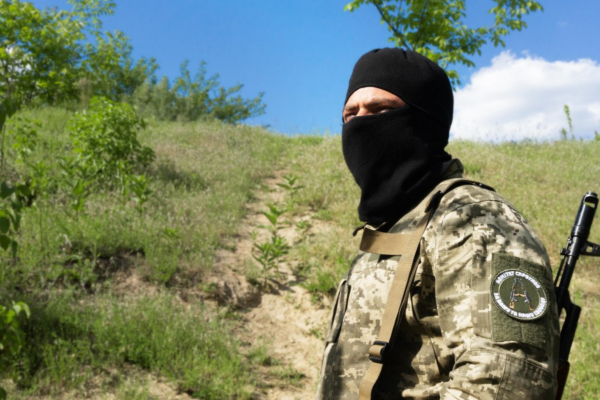For many years the anarchist movement in Belarus, Russia, and Ukraine has participated in major political events with varying degrees of success. Maidan in Ukraine, protests against slavery and 2020 in Belarus, actions in Russia – wherever the struggle against authoritarianism began, anarchists were at the forefront. The same situation developed when Russia began its full-scale invasion of Ukraine. Many comrades from various parts of the former Soviet Union took up arms to fight against Putin’s inhumane regime. Today there are more than a hundred anarchists and anti-fascists fighting in Ukraine, scattered across different units and sections of the front. Some have been able to create their own small fighting group of comrades and friends, while others fight on their own in the ranks of the ZSU.
After the collapse of the anti-authoritarian platoon in Ukraine, there were several people who were still eager to create anarchist or anti-authoritarian military units at least as a political opposition to the far-right structures that continue to successfully develop in the fight against Russian fascism. Unfortunately, so far all these attempts have not resulted in anything more or less serious. It goes without saying that the government agencies are more likely to give the so-called patriots the green light than to allow anarchists to participate fully in the war, even if in this case there is a common enemy in Kremlin. But unfortunately, attempts to create separate groups have remained the initiative of a small number of comrades who consider this kind of political formation of anti-authoritarians important. Many anarchists and anti-fascists ended up joining groups with not even a liberal political vision of the future of Ukraine, Belarus, or Russia.
The recent raids of the Russian Volunteer Corps show what a serious crisis the anarchist movement has found itself in. Many comrades in the social networks have begun to speak positively about the far-right’s raids on Putin-controlled territories. And if we put aside the political views of the RVC, we can really see something positive in what is happening. But we can by no means discard these views. Today’s involvement of the Russian far-right on the side of Ukraine is opportunism in the hope for political power in Russia after Putin’s defeat. There is no doubt that the huge popularity of the neo-Nazis for their actions in the Belgorod People’s Republic will attract even more people to their ranks and the rise of the views of the so-called “alternative Russian world,” according to which the genocide of the Russian people is now taking place, will prove popular not only among sectarian neo-Nazi groups, but also in broader social circles. Some of the good Russians turned out to be neo-Nazis, who in the past killed migrants in the struggle for the purity of the Russian nation. What these Nazis will do tomorrow in a collapsed Russia is hard to say, but certainly not fight for freedom.
And while the ultra-right is increasing its influence not only in Russia, but also in the Belarusian diaspora, we see the relatively uncertain activity of many anarchists. Those who wanted to go to war have most likely already done so, and for many in Europe the war remains a background to which they have to some extent even become accustomed. After moving to liberal countries, anarchists from Belarus or Russia have no more prospects for struggle, and the crisis of the movement has only continued to worsen. Many of the most active comrades are absorbed in anti-repression work. The whole current situation has pushed anarchists from their position as the most active participants in the struggle for the liberation of the peoples of Eastern Europe to the back of the train of history. It seems that we have abandoned our hopes for a revolutionary transformation of the world in favor of a “reality” in which we have become much more individualized and no longer seek collective resistance. But anarchists are only strong when we are united. Fragmented along different lines, we risk not just losing another round of social and political struggle, but also losing the anarchist movement as a whole. If yesterday we said that there would be no anarchist movement if Russia wins in Ukraine, today there is a pretty good chance that there will be no anarchist movement even if Ukraine wins.
Some of us can point the finger at the Ukrainian anarchists, saying that they weren’t prepared enough for war, and because of this they can’t allow anarchists from other countries to participate fully. We categorically disagree with this approach. As internationalists, we believe that the preparation for any political crisis in the region rests on the shoulders of all comrades and does not stop at the borders of nation-states. How ready were the Russian or Belarusian anarchists for that war? We can talk about this for quite a long time…
What to do now, arriving in such a serious crisis during the war? Those who are still thinking of taking part in the military resistance should do so now. Only together can anarchists build enough structures for full political participation during the war and after the victory over Russia. Get in touch with the Resistance Committee and find out how you can join the collective struggle. If you don’t have the ability/power to take up arms, join the civilian structures and take action. If we are not resolute enough today, tomorrow the “liberated” Belarus or Russia may become places much more hostile to the ideas of freedom and equality than they are now.
Until everyone is free!
Pramen



